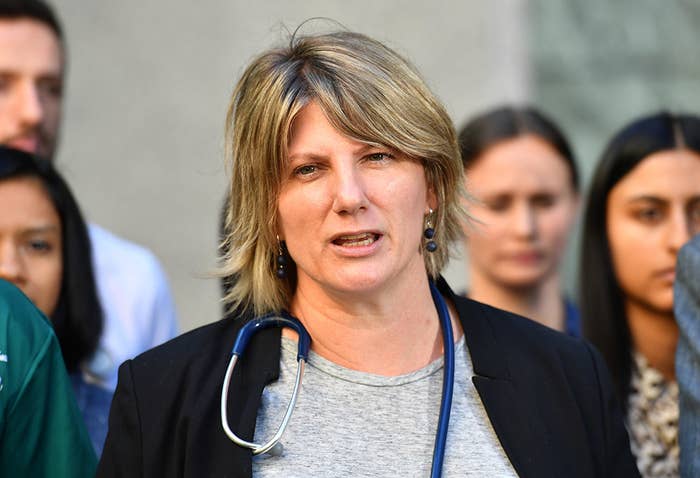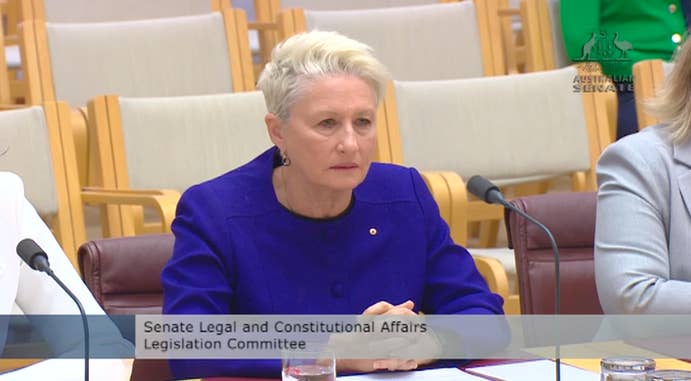
Despite dramatic warnings that Australia would be forced to accept rapists, murderers, and pedophiles under the medevac law, security concerns have only been raised about two people among more than 150 asylum-seekers and refugees who have sought medical transfers.
The medevac law, passed against the wishes of the government, gives doctors greater power to determine if sick refugees held in Papua New Guinea and Nauru should be transferred to Australia for medical treatment.
Before the bill passed, prime minister Scott Morrison claimed the new provisions would allow criminals into the country. “They may be a pedophile, they may be a rapist, they may be a murderer, and this bill will mean that we would just have to take them,” he said in February.
Under the law, the Home Affairs minister has a veto power and can refuse medical transfers on the basis a person would pose a risk of criminal conduct or be prejudicial to security.
The government intends to repeal the legislation, and a parliamentary inquiry into the issue is underway.
On Monday, department officials were not able to confirm to the inquiry if the security veto had been exercised at all, and said only a small number of people had raised character concerns.
“Two had adverse character issues, but whether they were refused on that, I’d have to take that on notice,” senior assistant secretary Alana Sullivan said.
Earlier on Monday, volunteer doctors involved in organising transfers told the committee they were not aware of the government using the security veto in the six months the medevac law has been in operation.
When two doctors recommend a transfer, it must be approved in 72 hours, unless the minister objects on medical or security grounds. Medical refusals are reviewed by an independent panel of experts, but if the panel overrides the minister’s decision, he is still able to refuse it on security or criminal grounds.
Officials from the Department of Home Affairs told the inquiry on Monday that immigration minister David Coleman and Home Affairs minister Peter Dutton had approved 127 transfers in the six months the medevac provisions have been in operation.
Coleman and Dutton have rejected 28 requests on medical grounds. In 18 cases the panel agreed with the government. However, eight of those rejected subsequently reapplied and were approved for transfer.

The notion of criminals entering Australia attracted vigorous questioning from government politicians. Committee chair and Liberal senator Amanda Stoker repeatedly asked medical witnesses about claims that more than 50 people in offshore detention had adverse character findings.
Dr Kerryn Phelps, the former MP for Wentworth who was a key figure in devising and passing the legislation, rejected the claim. “We’ve never seen a definition of bad character,” she said. “The department and minister have not established a great deal of credibility in this area, I have to say.”
Labor senator Kim Carr mentioned the case of two Rwandan men accused of massacring tourists in 1999 who were granted humanitarian visas to Australia under the refugee swap deal with the US.
“There appears to be some inconsistency in the application of these arrangements,” he said.
Home Affairs department secretary Mike Pezzullo later argued that the minister’s security veto power under the law was too narrow.
Doctors also strenuously rejected the Home Affairs Department’s claim that the medevac law had caused a spike in self-harm incidents in Papua New Guinea.
Dr Neela Janakiramanan, a Melbourne surgeon, said doctors had warned the department before the federal election in May that mental health issues would likely spike if the Coalition won, because of “concerns that an ongoing Liberal government would not progress their applications for resettlement in a timely fashion”.
She said the doctors were told by a deputy secretary that the department did not have any health information on that cohort of patients, and unless the doctors gave them access to the medical records in their possession, and a detailed analysis of their health issues, the department would not be able to do anything about it.
The department’s submission about a self-harm spike was “incredibly disingenuous” in light of that experience, Janakiramanan said.
Department chief operating officer Cheryl-Anne Moy later responded that there was “no discussion in regard to the department not having visibility of self-harm issues” at the meeting.
Pressed for evidence of the department’s claim that refugees viewed self-harm as the “most expedient” way of being transferred to Australia, Pezzullo argued it could be inferred from the correlation of self-harm spikes with changes in the law.
Asked whether there would be an increased risk of death if the medevac law were repealed, Janakiramanan and Dr Sara Townend answered “without a doubt” and “absolutely”.
Janakiramanan performed what she described as “the first independent audit” of the disease burden among the offshore population. She told the committee that of the 581 people who applied to the medevac process, 97% had a significant physical health issue and 91% had significant mental health issues.
The panel had earlier heard from the president of the Australian Medical Association, Dr Tony Bartone, who said the independent panel was working well but its members should be remunerated.
Under the previous system for organising transfers, “there was no clear formal process, it was all ad hoc and the oversight was at time completely lacking,” he said.
BuzzFeed News has contacted the department for comment.
If you or someone you know needs help, you can call Lifeline Australia on 13 11 14, Beyond Blue Australia on 1300 22 4636, or the Suicide Callback Service on 1300 659 467.
